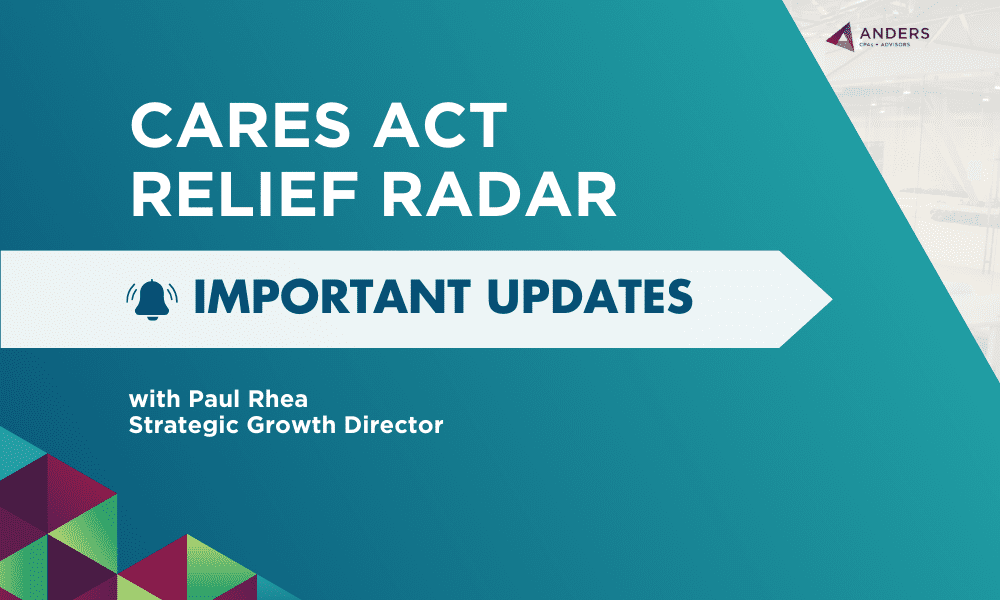Do banks qualify for the Employee Retention Tax Credit, often referred to as the ERTC or ERC? The answer is complicated due to the nature of ERTC qualification requirements. Some financial institutions are being bombarded with emails and calls from consultants promising them hefty sums of the ERTC funds, so it’s important to take the time to refresh yourself on which qualifications a business requires to apply for the ERTC before taking them up on that offer.
While most banking institutions understand that they don’t qualify under the first scenario, which applies to businesses ordered to close by the relevant governmental authority, the second scenario concerning gross receipts requires banks to evaluate their gross receipts with a fine-tooth comb.
Key Takeaways:
- To qualify for the ERTC, a business must either show that they were ordered to close by an appropriate government authority or demonstrate that their business suffered a 50% decrease in gross receipts in 2020 as compared to the same calendar quarter in 2019 or a 20% drop in gross receipts for 2021 as compared to 2019
- Banks were categorized as essential businesses at the beginning of the pandemic, which disqualifies most banks from the first scenario, even if the bank voluntarily closed its lobby or otherwise reduced hours to combat COVID-19 and comply with CDC guidelines
- Banks should determine their gross receipts using the same method they’ve used to calculate them in prior tax years
How to Qualify for the Employee Retention Tax Credit
The CARES Act of 2020 introduced two eligibility qualifications for the ERTC: businesses whose operations had been partially or fully suspended by local, state or federal governmental orders due to COVID-19 or businesses whose operations experienced a significant decline of 50% or more in gross receipts compared to the same calendar quarter in 2019. For 2021, because of the changes introduced by the Consolidated Appropriations Act, businesses needed to have a 20% reduction in gross receipts as compared with the same calendar quarter of 2019.
Banks Typically Fail One Qualification Test
Banks were deemed to be essential businesses at the onset of the pandemic although some branches closed their lobbies, limited hours and reduced capacity inside the building to appease the CDC’s social distancing rules. While it may seem as if this falls under the first category and can qualify a bank, the most important part is whether or not a governmental body required the closures or if the bank did so voluntarily. If no government authority ordered a closure or similar limits, as is the case with most banks, it’s unlikely that such an institution would qualify for the ERTC under this scenario.
The second scenario is somewhat more open to interpretation and requires banks to evaluate their gross receipts from 2020 and 2021 to determine whether they experienced a decline of 50% or 20%, respectively. Determining gross receipts can be somewhat complicated for banks, especially when considering, for example, income generated from the sale of loans, securities and other real estate owned (OREO). These properties’ gross receipts can be measured in different ways, such as based on the gross sales of the properties or based on the net gain for these activities.
Calculating Gross Receipts to Test ERTC Eligibility
While Internal Revenue Code Section 448 offers guidance on this complex area, measuring gross receipts is not clearly defined. To oversimplify by quite a large margin, anything that puts cash in the pocket is considered gross receipts. According to IRS guidance on the ERTC, that includes interest, dividends, rents, royalties or annuities “regardless of whether those amounts are derived in the ordinary course of the taxpayer’s trade or business.”
Consider how your bank measured gross receipts in prior tax years and use that same method to calculate gross receipts for the years effected. When in doubt, it’s best to assume your bank does not qualify for the ERTC. Working with advisors experienced in CARES Act funding can help you understand your organization’s standing regarding the ERTC.
Due to the IRS ERTC moratorium, Anders will no longer be accepting new ERTC clients until the IRS issues additional guidance related to this moratorium and the options available to affected businesses. Learn more about the IRS’s ERTC moratorium.
All Insights





